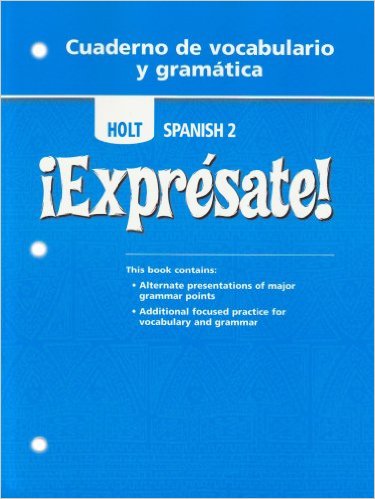
All Solutions
Page 16: Gramatica
To think about which indirect object pronoun to use we must first identify the indirect object of the sentence. Remember that it is the person who receives or benefits from an action.
In this case, the indirect object is *los niños* which means *the children*, because it is they to whom the teacher reads the book. Following the same rules as with direct object pronouns, their indirect object pronoun is **les**.
|Spanish |English |
|–|–|
|La profesora les lee un libro a los niños. | The teacher reads a book to the children. |
In this case, the indirect object of the sentence is *tú* or *you*, because you are the one to whom the mailcarrier brings the mail. The indirect object pronoun that belongs to you is **te**.
| Spanish|English |
|–|–|
|El cartero te trae el correo a ti. |The mailcarrier brings the mail to you. |
In this case, the indirect object of the sentence is José, because he is the one to whom the merchant can teach to sell. The indirect object pronoun that belongs to him is **le**.
|Spanish |English |
|–|–|
|El comerciante le puede enseñar a José a vender. |The merchant can teach José how to sell. |
In this sentence, the indirect object is Olga and me, because we are the ones to whom the journalist told us the news. The indirect object pronoun that belongs to us is **nos**.
|Spanish |English |
|–|–|
|El periodista nos contó la noticia a Olga y a mí. | The journalist told the news to Olga and me.|
In this case, the indirect object of the sentence is *the sick* or *los enfermos*, because it is to them that the nurses give the medicine.. The indirect object pronoun that belongs to them is **les**.
| Spanish|English |
|–|–|
| Las enfermeras les dan las medicinas a los enfermos. |The nurses give the medicines to the sick. |
In this sentence, the indirect object is *me* or *mí*, because it is to me that the programmer can lend the computer.. The indirect object pronoun that belongs to me is **me**.
|Spanish |English |
|–|–|
| La programadora me puede prestar la computadora a mí. |The programmer can lend me the computer. |
The direct object in this case is the people, because it is to them that the driver says good morning. The indirect object pronoun that belongs to them is **les**.
| Spanish|English |
|–|–|
|El conductor siempre les dice “buenos días” a la gente. | The driver always says “good morning” to people.|
The direct object in this case is the students, because it is to them that the school secretary sells supplies. The indirect object pronoun that belongs to them is **les**.
|Spanish |English |
|–|–|
|La secretaria del colegio les vende útiles a los estudiantes. |The school secretary sells supplies to the students. |
In this case, the indirect object is me because I am the one who is being told the jokes. The indirect object pronoun that belongs to me is **me**.
|Spanish | English|
|–|–|
| Le gusta contarme chistes a mí. |He/she likes to tell me jokes. |
The indirect object in this is *tu hermano* which means *your brother*, because he is the one for whom I should prepare breakfast. The indirect object pronoun that belongs to him is **le**.
| Spanish| English|
|–|–|
|Prepárale el desayuno a tu hermano. |Make breakfast for your broher. |
2) me dice
3) nos dan
4) te digo
5) les damos
6) les da
2) “Mi Patria” es el nombre del colegio donde estudia Alicia.
3) Sus hermanos son de Perú.
4) La mamá de Alicia es de México.
5) Son los cinco en su familia.
6) El papá de Alicia es mecánico.
7) La mamá de Alicia es secretaria en el taller.
8) El taller es del papá de Alicia.

